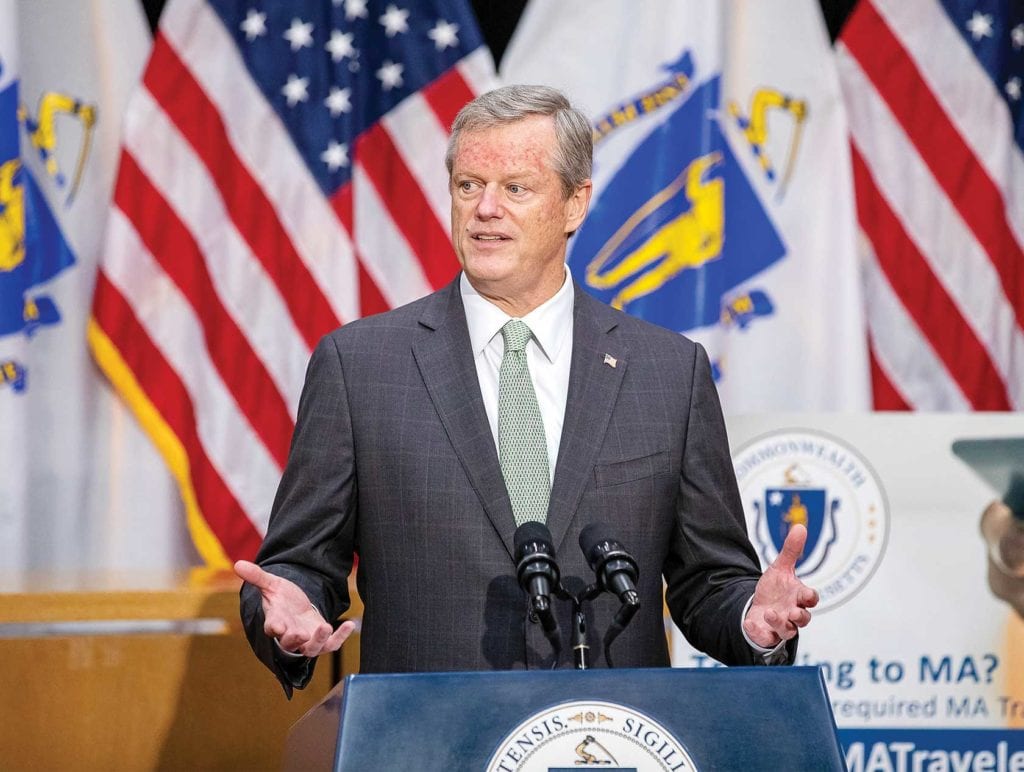Who’s really getting state contracts?
Minority contracting numbers questioned

A GBH investigation has revealed that minority businesses may not get as great a share of state contracting dollars as the governor is reporting. While Governor Charlie Baker said he disagrees with virtually everything in the report, state leaders are looking into the possibility that the Baker administration has inflated its claim of increased spending with minority-owned establishments.
To meet mandates designed by the Supplier Diversity Office (SDO), the report claims, the state is allowing indirect spending with minority contractors and spending with out-of-state or unverifiable minority contractors.
“Massachusetts has redefined compliance with that mandate, so state contractors can meet the goal by paying for goods or services that may have nothing to do with a government contract,” GBH reporter Paul Singer wrote. “And many of the businesses getting paid are outside Massachusetts, are not certified as being minority-owned, or appear to barely exist at all.”
The claim alarmed members of the Massachusetts Black and Latino Legislative Caucus (MBLLC), who plan to meet with the SDO this week. Rep. Carlos Gonzalez, chairman of the Caucus, said caucus members are concerned about how the state reviews and reports its numbers.
“What I hope is to get clarification as to how they reported these numbers, and how we can intentionally have action that can increase participation of minorities in contracts,” Gonzalez told the Banner.
Lawyers for Civil Rights released a statement about the investigation, calling the governor’s actions fraudulent. Priya Lane, who works directly with Massachusetts’ minority businesses through Lawyers for Civil Rights’ BizGrow program, says this unverified spending is a direct harm to minority contractors.
“It’s not a victimless crime at all. It deprives minority small businesses of economic opportunity, instead of leading by example. The state should be hiring and building wealth in disadvantaged communities in Massachusetts,” Lane said, adding that the report has increased her distrust in the numbers the state is reporting.
When GBH started its series on racial disparities in government contracts, it reported that Black businesses’ share of public contracts has declined over the last 20 years. Now, Lane said, these new findings show that the situation is worse than previously thought.
According to Reggie Nunnally, who ran the SDO from 2009 to 2015, the office has no process for verifying if the state’s prime contractors have hired or paid minority businesses outside of direct spending from state accounts.
“Any company could basically say, ‘Look, I spent X amount of dollars with a minority firm … and how would they know?” Nunnally told GBH.
Patrick Marvin, communications director for the Executive Office for Administration and Finance, reaffirmed the administration’s commitment to its spending numbers. “The Baker-Polito Administration has annually raised and exceeded benchmarks for participation by minority business enterprises and is continuing to make improvements and raise goals in order to further promote diversity in the public marketplace,” Marvin said in a statement.
The statement comments on direct spending and does not address the claims on indirect or unverifiable spending.
Segun Idowu, executive director of the Black Economic Council of Massachusetts (BECMA), says the Baker administration also denied the claims in January, when GBH’s series began.
“If [their denial] is true, then my one major recommendation to the Baker administration is that they need to release a statement explaining line by line how the story is not accurate,” Idowu told the Banner.
BECMA has written letters to the governor in January and last week, requesting a meeting about these issues. The group has also promoted its own recommendations for supplier diversity and advocated for a separate and independent supplier diversity office.
“The policy ideas that we had recommended, if they had been implemented before we had to shut down the state … state agencies and others would have been much better prepared to deal with helping to save our businesses,” Idowu said.
Not only do BECMA’s letters ask for an independent SDO, they also demand that the MBLLC and the Black Advisory Commission have oversight over the office’s activities.
“On one hand, we’re already not getting business,” Idowu said. “And because of that, people don’t want to try to get business, because the assumption is that you’re not going to get anything, so why waste your time?”






